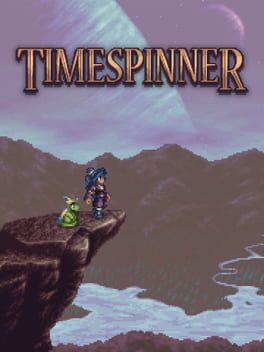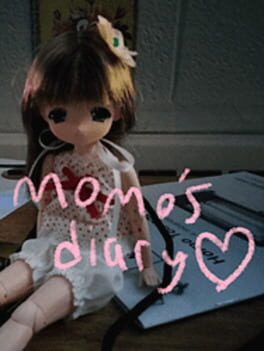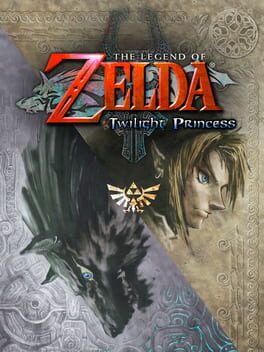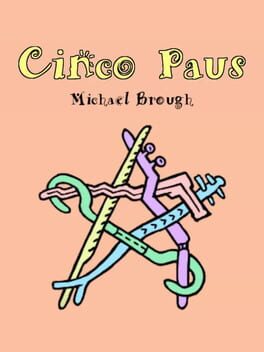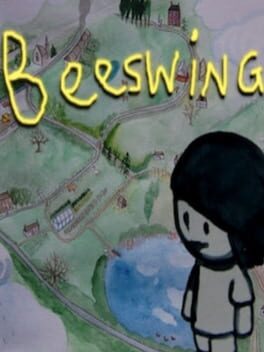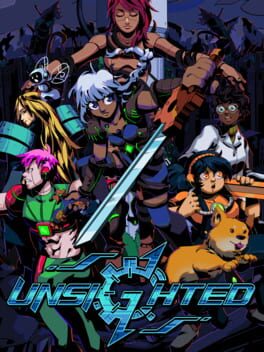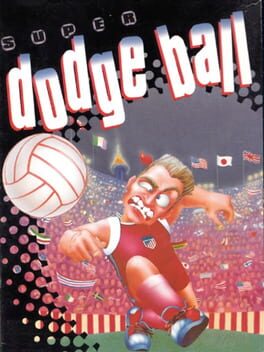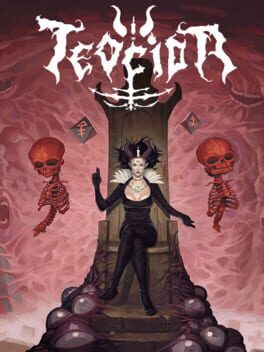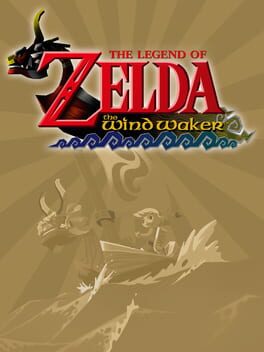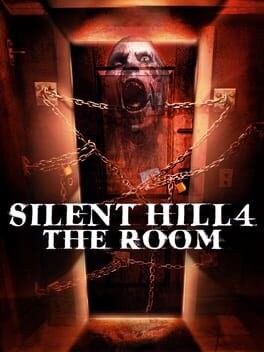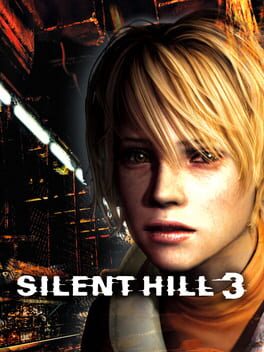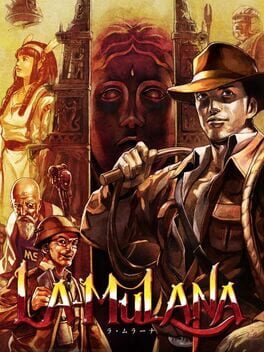2022
This review contains spoilers
CW: Suicide attempt
I wasn't the best student.
Though there was no divine judgement looming over my back, there was the fascist state of Americana that we were forced to worship at all times. Get good grades and you'll be spared from the wrath of poverty. Get good grades and you'll be able to provide for yourself. Get good grades and you'll be loved. Pray to the flag, the iconography of empire, or risk being ousted.
I saw the worst of this because of how poorly I did in school. The first time was simply because I was overwhelmed by the radical change in schooling styles from elementary school to high school. It was a whole new level of workload from before that the faculty was not interested in helping me adjust to, not helped by the fact that I would not be diagnosed with autism until I was almost done with schooling. The second time was when I fractured my femur in three places. I couldn't walk, so I had to be taught from home, and being taught from came with its own challenges and a lack of connection that I didn't realize I required to thrive.
The third time was when I attempted to take my life when I was 16.
I often think about how much different my life would have been had I not taken that choice. How much more pressure the school put on me simply for having a moment of weakness like that. I often come to the conclusion that it doesn't matter, because the systems that we live in would have led me to that outcome regardless, even if it had taken longer. And the schoolwork would pile up and pile up, crushing me under its weight, which becomes a self-fulfilling prophecy of death wishes.
I graduated only two years ago, which is weird to think about, because it feels like it's been so much longer. I have recurring nightmares about what it was like to be in that place. About the constant dread of what would happen if I failed. And the worst part is that, much like our ghost girl friend in this game, I blamed it all on myself. I thought that if only everyone did their best, things would be different. If I hadn't happened upon communist literature toward the end of my time, then I'm not sure what would have happened to me.
I thought a broken system was perfect because it was all I had ever known.
Thank you, Woodaba. For sharing this beautiful story.
I wasn't the best student.
Though there was no divine judgement looming over my back, there was the fascist state of Americana that we were forced to worship at all times. Get good grades and you'll be spared from the wrath of poverty. Get good grades and you'll be able to provide for yourself. Get good grades and you'll be loved. Pray to the flag, the iconography of empire, or risk being ousted.
I saw the worst of this because of how poorly I did in school. The first time was simply because I was overwhelmed by the radical change in schooling styles from elementary school to high school. It was a whole new level of workload from before that the faculty was not interested in helping me adjust to, not helped by the fact that I would not be diagnosed with autism until I was almost done with schooling. The second time was when I fractured my femur in three places. I couldn't walk, so I had to be taught from home, and being taught from came with its own challenges and a lack of connection that I didn't realize I required to thrive.
The third time was when I attempted to take my life when I was 16.
I often think about how much different my life would have been had I not taken that choice. How much more pressure the school put on me simply for having a moment of weakness like that. I often come to the conclusion that it doesn't matter, because the systems that we live in would have led me to that outcome regardless, even if it had taken longer. And the schoolwork would pile up and pile up, crushing me under its weight, which becomes a self-fulfilling prophecy of death wishes.
I graduated only two years ago, which is weird to think about, because it feels like it's been so much longer. I have recurring nightmares about what it was like to be in that place. About the constant dread of what would happen if I failed. And the worst part is that, much like our ghost girl friend in this game, I blamed it all on myself. I thought that if only everyone did their best, things would be different. If I hadn't happened upon communist literature toward the end of my time, then I'm not sure what would have happened to me.
I thought a broken system was perfect because it was all I had ever known.
Thank you, Woodaba. For sharing this beautiful story.
2018
This review contains spoilers
Timespinner is a game that's unabashedly queer.
One side character is a trans woman. Polyamory is normalized. A monarch in a position of power we meet is a lesbian. Our main protagonist flirts with characters of all genders. It's something that is in every facet of it - the DNA of this game is queerness. While it's not particularly complex or compelling queerness - the characters are simply queer, the narratives surrounding them are not - it's a nice comfort at least.
What confuses me about this, though, is the story and ideas surrounding all of this. Timespinner is ostensibly a game about imperialism and colonialism, and how those systems destroy lives and perpetuate a never ending cycle. The monarchy which you set out to destroy at the beginning of the game, as it turns out, was created by the oppression of another monarchy one thousand years before. An ouroboros of systemic violence.
It's a pretty standard and accurate depiction of how these political structures sustain themselves. The cycles of violence that fuel empire. However, I don't understand why, through the game's analysis of race relations under these systems, it doesn't do anything meaningful with queerness. Queer characters simply exist. I can see the appeal in that. But when we talk about colonialism and queerness, it's hard for me to ignore the elephant in the room of how colonialism has consistently erased queer identities throughout history. This game ignores that there is any meaningful connection at all.
Adding onto its strange relationship with its own subject matter, the game does indulge in some fantasy racism. The demons are considered unequivocally evil, and a lot of time is spent on how they're the reason behind the previously colonized kingdom becoming the new colonizer. It was their use of demonic forces, the game argues, that led to their downfall. I'm not sure that I have to explain an entire sentient species being completely evil is an awful narrative choice in a game that's about the subjugation of groups of people. It's an awful narrative choice in almost any context, but here it echoes the propaganda that this game is attempting to criticize.
It ultimately ends up being a very conflicted experience. It seems to only wish to tackle the subjects it covers in very broad strokes.
For stories like this, we need a finer painter.
One side character is a trans woman. Polyamory is normalized. A monarch in a position of power we meet is a lesbian. Our main protagonist flirts with characters of all genders. It's something that is in every facet of it - the DNA of this game is queerness. While it's not particularly complex or compelling queerness - the characters are simply queer, the narratives surrounding them are not - it's a nice comfort at least.
What confuses me about this, though, is the story and ideas surrounding all of this. Timespinner is ostensibly a game about imperialism and colonialism, and how those systems destroy lives and perpetuate a never ending cycle. The monarchy which you set out to destroy at the beginning of the game, as it turns out, was created by the oppression of another monarchy one thousand years before. An ouroboros of systemic violence.
It's a pretty standard and accurate depiction of how these political structures sustain themselves. The cycles of violence that fuel empire. However, I don't understand why, through the game's analysis of race relations under these systems, it doesn't do anything meaningful with queerness. Queer characters simply exist. I can see the appeal in that. But when we talk about colonialism and queerness, it's hard for me to ignore the elephant in the room of how colonialism has consistently erased queer identities throughout history. This game ignores that there is any meaningful connection at all.
Adding onto its strange relationship with its own subject matter, the game does indulge in some fantasy racism. The demons are considered unequivocally evil, and a lot of time is spent on how they're the reason behind the previously colonized kingdom becoming the new colonizer. It was their use of demonic forces, the game argues, that led to their downfall. I'm not sure that I have to explain an entire sentient species being completely evil is an awful narrative choice in a game that's about the subjugation of groups of people. It's an awful narrative choice in almost any context, but here it echoes the propaganda that this game is attempting to criticize.
It ultimately ends up being a very conflicted experience. It seems to only wish to tackle the subjects it covers in very broad strokes.
For stories like this, we need a finer painter.
2022
This review contains spoilers
Others can't understand.
It's hard to convey what I found so compelling about Momo's Diary. Perhaps it's because I've been having a pretty rough day today. Perhaps it's because it echoes something I've felt deeply with the journey into adulthood and growing with BPD in that friends who you haven't spoken with in a long time really truly do not understand the you you are now, only the you you were. Perhaps it's because I have been here before. Never at the point where I can't get out of bed, but definitely at points where I've felt I couldn't help myself anymore.
I find it hard to convey why I like this so much, though, because even though I resonate with it more than these other titles, it has a lot of the same things that made me dislike games such as Hello Charlotte and the Milk Bag duology. Games that I felt romanticized mental illness as much as they portrayed it accurately, to a particularly unhealthy extent in Hello Charlotte. There's something idealized about being a mentally ill little pretty doll. It's a fairly adorable way to be depressed. I'm not sure what's different about that than me taking umbrage with the girl in the Milk Bag games being a conventionally attractive anime girl.
Maybe it's only that she grows more and more resentful of her former friends as time soldiers on. When I graduated high school, I lost all the friends I had made throughout it. We never talk anymore, and when we do, I feel as if they understand me to be someone else entirely. The same thing with many online friends I've made. It's a very non-endearing trait for her to have. It's hurtful.
Nobody understands Momo, and she is hateful because of it. Sometimes I am too.
But I don't even understand myself.
It's hard to convey what I found so compelling about Momo's Diary. Perhaps it's because I've been having a pretty rough day today. Perhaps it's because it echoes something I've felt deeply with the journey into adulthood and growing with BPD in that friends who you haven't spoken with in a long time really truly do not understand the you you are now, only the you you were. Perhaps it's because I have been here before. Never at the point where I can't get out of bed, but definitely at points where I've felt I couldn't help myself anymore.
I find it hard to convey why I like this so much, though, because even though I resonate with it more than these other titles, it has a lot of the same things that made me dislike games such as Hello Charlotte and the Milk Bag duology. Games that I felt romanticized mental illness as much as they portrayed it accurately, to a particularly unhealthy extent in Hello Charlotte. There's something idealized about being a mentally ill little pretty doll. It's a fairly adorable way to be depressed. I'm not sure what's different about that than me taking umbrage with the girl in the Milk Bag games being a conventionally attractive anime girl.
Maybe it's only that she grows more and more resentful of her former friends as time soldiers on. When I graduated high school, I lost all the friends I had made throughout it. We never talk anymore, and when we do, I feel as if they understand me to be someone else entirely. The same thing with many online friends I've made. It's a very non-endearing trait for her to have. It's hurtful.
Nobody understands Momo, and she is hateful because of it. Sometimes I am too.
But I don't even understand myself.
This review contains spoilers
My country has a history of meddling in foreign affairs. It is an empire, after all.
The United States, in order to protect the interests of capital, has overextended into other nations often. The Middle East, most famously. Vietnam as well. Brazil, closest to my heart. An untold amount of others that we simply don't know about. It's a harrowing thing to think about, a terrible pill to swallow - these forever wars are simply the end goal of the systems and structures we have created for ourselves, one that we as individuals have no power to stop.
There are many reasons for these. Resources. A simple show of strength. Perhaps to even disrupt political progress because it will bring down the empire. In Twilight Princess, it is simply revenge. A very human emotion for the machine to harbor, and perhaps too simple. Ganondorf merely seeks to capture what he perceives that he deserves, what he thinks that he is entitled to.
Maybe I'm wrong that it's too simple. Now that I've written out, I see that perhaps that motivation for tyranny is accurately portrayed, from a certain point of view.
So he uses Zant, a puppet in a nation that has been oppressed by Hyrule for aeons. One that has been exploited and segregated from the land of light for perceived crimes against systemic abusers. A vilified group of people who were shunted outside of reality. Through this oppression it was easy for a fascist such as Ganon's toy to arise, one who was used so easily as a tool for the larger game of capital. After all, a God came from the heavens and gave him something to blame. A system to believe in. Something to trust in.
Zant is a pitiable, pathetic creature. Ganon is a disgusting manipulator.
A fascist coup backed by a foreign empire in the interest of political power. Countries used as nothing more than ways to gain ever more money.
It's a story that's been played out over and over again, as old as are light and shadow.
The United States, in order to protect the interests of capital, has overextended into other nations often. The Middle East, most famously. Vietnam as well. Brazil, closest to my heart. An untold amount of others that we simply don't know about. It's a harrowing thing to think about, a terrible pill to swallow - these forever wars are simply the end goal of the systems and structures we have created for ourselves, one that we as individuals have no power to stop.
There are many reasons for these. Resources. A simple show of strength. Perhaps to even disrupt political progress because it will bring down the empire. In Twilight Princess, it is simply revenge. A very human emotion for the machine to harbor, and perhaps too simple. Ganondorf merely seeks to capture what he perceives that he deserves, what he thinks that he is entitled to.
Maybe I'm wrong that it's too simple. Now that I've written out, I see that perhaps that motivation for tyranny is accurately portrayed, from a certain point of view.
So he uses Zant, a puppet in a nation that has been oppressed by Hyrule for aeons. One that has been exploited and segregated from the land of light for perceived crimes against systemic abusers. A vilified group of people who were shunted outside of reality. Through this oppression it was easy for a fascist such as Ganon's toy to arise, one who was used so easily as a tool for the larger game of capital. After all, a God came from the heavens and gave him something to blame. A system to believe in. Something to trust in.
Zant is a pitiable, pathetic creature. Ganon is a disgusting manipulator.
A fascist coup backed by a foreign empire in the interest of political power. Countries used as nothing more than ways to gain ever more money.
It's a story that's been played out over and over again, as old as are light and shadow.
2017
Roguelikes and I generally don't mix. I find that their narratives aren't compelling to me - the endless cavalcade of new generated rooms, layouts and spaces without distinct purpose. I have yet to find one that I find artistically provocative. Unfortunately, Cinco Paus feels about as basic as they come.
It's impressive how it all comes together. The premise is that you get five different wands with randomized effects each time you play, and you don't know what the effects are until you use the wands and see them in action. Each enemy has a different amount of health, and attacking them while adjacent to them deals damage to you as well. Each room is like a puzzle of experimentation. I will say, though, that's a bit hard to parse what the wand effects do - the game doesn't really tell you what the symbols mean and it can be easy to forget.
But those core mechanics are the only mildly interesting thing about this game. There is nothing underneath them, they aren't telling me anything about anything other than themselves. It's really a shame, I was interested in this game because I'd never heard about it before! But the core gameplay loop just feels like a distilled roguelike experience, even moreso than the average roguelike - which is not a compliment. What is the point of a strong set of systems when those systems aren't in service of anything else? I don't know. Maybe you can figure that point out for yourself, but for me, it's just not interesting.
It's impressive how it all comes together. The premise is that you get five different wands with randomized effects each time you play, and you don't know what the effects are until you use the wands and see them in action. Each enemy has a different amount of health, and attacking them while adjacent to them deals damage to you as well. Each room is like a puzzle of experimentation. I will say, though, that's a bit hard to parse what the wand effects do - the game doesn't really tell you what the symbols mean and it can be easy to forget.
But those core mechanics are the only mildly interesting thing about this game. There is nothing underneath them, they aren't telling me anything about anything other than themselves. It's really a shame, I was interested in this game because I'd never heard about it before! But the core gameplay loop just feels like a distilled roguelike experience, even moreso than the average roguelike - which is not a compliment. What is the point of a strong set of systems when those systems aren't in service of anything else? I don't know. Maybe you can figure that point out for yourself, but for me, it's just not interesting.
2014
I think it's important for things to be on time. Do you think so? I don't really know. I know I just said I think that it's important, but in reality, I think that sometimes things are okay being a bit late. When things are late, there's a sense of living to them. As if they have their own schedule and that's why they haven't arrived in time. Lackadaisically beautiful. My cat was late for dinner the other day. Do you think he was busy? Maybe he was. I wonder why.
------------------------------------------------------------------------------------------------
Shaving is hard and it hurts your face. But like a lot of things, it just feels right once you get through it. I bet you know that feeling. It's nice to have a clean face, ready for the day ahead of you. So I suppose it's worth getting through the hurt of it. Which isn't to say it doesn't hurt, but it's like the old adage about ripping the band aid off. Though it's not entirely one to one, shaving your face isn't as important to your health as pulling off a band aid, but it does feel good to do. Feeling clean is nice.
------------------------------------------------------------------------------------------------
I went to my mother's house again for the first time in quite some time for a gathering recently. It's interesting how little she's changed in spite of how much I have. It's like looking at a time capsule. People are weird when they don't grow much. It makes me feel strange. Since I graduated high school, I have done so much, but I meet some of my former classmates and they're still the same as before. Or, the ways that they've changed just don't surface. It could really be either, you know? Maybe others think it's weird how similar I am to how I used to be, how I haven't changed. I like to think that. I like to think that others think of me and care.
------------------------------------------------------------------------------------------------
I have a piano in my room that I haven't played in years, but I would like to try playing again. There's just not enough time. I focus more on my writing than anything else. Sometimes I wonder what I would do with more time. I don't even think I'd play the piano more, as much as I would like to. I think I would just write more. Isn't that strange? I say I'd do something with more time, but I don't actually end up doing that. I wonder how many things I've thought like that.
------------------------------------------------------------------------------------------------
A snapshot of life
Still as the gentle water
A beating heart lives
------------------------------------------------------------------------------------------------
Shaving is hard and it hurts your face. But like a lot of things, it just feels right once you get through it. I bet you know that feeling. It's nice to have a clean face, ready for the day ahead of you. So I suppose it's worth getting through the hurt of it. Which isn't to say it doesn't hurt, but it's like the old adage about ripping the band aid off. Though it's not entirely one to one, shaving your face isn't as important to your health as pulling off a band aid, but it does feel good to do. Feeling clean is nice.
------------------------------------------------------------------------------------------------
I went to my mother's house again for the first time in quite some time for a gathering recently. It's interesting how little she's changed in spite of how much I have. It's like looking at a time capsule. People are weird when they don't grow much. It makes me feel strange. Since I graduated high school, I have done so much, but I meet some of my former classmates and they're still the same as before. Or, the ways that they've changed just don't surface. It could really be either, you know? Maybe others think it's weird how similar I am to how I used to be, how I haven't changed. I like to think that. I like to think that others think of me and care.
------------------------------------------------------------------------------------------------
I have a piano in my room that I haven't played in years, but I would like to try playing again. There's just not enough time. I focus more on my writing than anything else. Sometimes I wonder what I would do with more time. I don't even think I'd play the piano more, as much as I would like to. I think I would just write more. Isn't that strange? I say I'd do something with more time, but I don't actually end up doing that. I wonder how many things I've thought like that.
------------------------------------------------------------------------------------------------
A snapshot of life
Still as the gentle water
A beating heart lives
2021
This review contains spoilers
Time is such a precious part of our lives.
I've seen people slowly succumb to illness in front of me before. My grandmother suffered cancer four different times, and the fourth time took her without remorse. She was so strong and so resilient, and I will always be proud of her for fighting as long as she did, but it broke me. Seeing someone fade from you, someone you love so much, it's just suffering. A living nightmare.
That slow decay is what stuck out to me the most while playing UNSIGHTED. Every NPC you meet and make a connection with is on a timer that is constantly going down until they die. As the game drags on, and as means of extending lifespans become more and more scarce, you see more and more of the NPCs you tried to bond with slip away into death. The village starts the game as a bustling center of life and ends it completely empty, broken signs indicating empty establishments.
Silent.
There's nobody left by the end. Even this game's helper character, a Navi equivalent, dies off eventually. It's only you and your thoughts as you navigate a once vibrant world. The worst part is that you knew it was coming. You could have possibly prevented it if only you were faster. If only you had finished the game in a shorter time frame, then everyone could have been saved.
But you didn't. Now everything is gone. All the things you wanted to say that you never did, all the people you never met that have vanished from existence. Who knows what you could have found in the lives you didn't have the time to save?
There's never enough time.
There are so many things I wish I could have said to my grandmother before she passed. I looked up to her a lot and I still think she was the wisest person I ever met. But I was only 15 when she died. I didn't have the words to express those feelings yet. The last conversation I ever had with her was me sitting across from her in the hospital explaining something I was hyperfixating on to her. I wish I had told her how amazed by her I was, how often I thought of her when I needed guidance on a decision. I didn't because I didn't know how.
But I did the best I could.
I've seen people slowly succumb to illness in front of me before. My grandmother suffered cancer four different times, and the fourth time took her without remorse. She was so strong and so resilient, and I will always be proud of her for fighting as long as she did, but it broke me. Seeing someone fade from you, someone you love so much, it's just suffering. A living nightmare.
That slow decay is what stuck out to me the most while playing UNSIGHTED. Every NPC you meet and make a connection with is on a timer that is constantly going down until they die. As the game drags on, and as means of extending lifespans become more and more scarce, you see more and more of the NPCs you tried to bond with slip away into death. The village starts the game as a bustling center of life and ends it completely empty, broken signs indicating empty establishments.
Silent.
There's nobody left by the end. Even this game's helper character, a Navi equivalent, dies off eventually. It's only you and your thoughts as you navigate a once vibrant world. The worst part is that you knew it was coming. You could have possibly prevented it if only you were faster. If only you had finished the game in a shorter time frame, then everyone could have been saved.
But you didn't. Now everything is gone. All the things you wanted to say that you never did, all the people you never met that have vanished from existence. Who knows what you could have found in the lives you didn't have the time to save?
There's never enough time.
There are so many things I wish I could have said to my grandmother before she passed. I looked up to her a lot and I still think she was the wisest person I ever met. But I was only 15 when she died. I didn't have the words to express those feelings yet. The last conversation I ever had with her was me sitting across from her in the hospital explaining something I was hyperfixating on to her. I wish I had told her how amazed by her I was, how often I thought of her when I needed guidance on a decision. I didn't because I didn't know how.
But I did the best I could.
1989
The 1980s were a time that I wasn't around for. I was born in 2002, twenty years later. American culture from that time frame is something I'll never truly understand, if only because I didn't grow up in it. To my knowledge, however, it's largely defined by its films, music, and unfortunately, strong anti-communist sentiments.
Super Dodge Ball embodies all of these ideas. It's a very 1980s story, as if the generation as I understand it were transmogrified into a single video game. A time capsule of a different era, far more interesting to me than many games from the late aughts and early 2010s that try to capture its aesthetics. Here's a game that has it all: an underdog sports story where you go up against the Soviets.
It's interesting how the gameplay reinforces this underdog ethos: the other team members always have way more health than you, usually deal way more damage than you, and often times have access to moves that you can't use. Its strategy that you have to use to be able to win against them, even though it takes a while to get used to learning how to use each of your skills. There's a severe lack of coordination from the limited AI that lends to this experience. It's hard to work together with everyone.
Also, the stakes are way higher than the average dodgeball game - for some reason, getting someone out of the game makes them die. Their spirit floats away as their corpse disappears. I didn't really know how to talk about this but I felt like I had to - it's just a strange and funny choice for a game like this. Sam and his friends are going through some rough shit.
At the end, when you finally defeat the reigning champs and reinforce xenophobic ideas through your intense patriotism, your team throws you up into the air triumphantly as it turns into a sepia photo of all your hard work. Just like every 80s' sports movie, Super Dodge Ball paints itself poignant and inspirational, as if our team has come so far.
Even if it's just a dodge ball game, regardless of how strangely morbid it is.
Super Dodge Ball embodies all of these ideas. It's a very 1980s story, as if the generation as I understand it were transmogrified into a single video game. A time capsule of a different era, far more interesting to me than many games from the late aughts and early 2010s that try to capture its aesthetics. Here's a game that has it all: an underdog sports story where you go up against the Soviets.
It's interesting how the gameplay reinforces this underdog ethos: the other team members always have way more health than you, usually deal way more damage than you, and often times have access to moves that you can't use. Its strategy that you have to use to be able to win against them, even though it takes a while to get used to learning how to use each of your skills. There's a severe lack of coordination from the limited AI that lends to this experience. It's hard to work together with everyone.
Also, the stakes are way higher than the average dodgeball game - for some reason, getting someone out of the game makes them die. Their spirit floats away as their corpse disappears. I didn't really know how to talk about this but I felt like I had to - it's just a strange and funny choice for a game like this. Sam and his friends are going through some rough shit.
At the end, when you finally defeat the reigning champs and reinforce xenophobic ideas through your intense patriotism, your team throws you up into the air triumphantly as it turns into a sepia photo of all your hard work. Just like every 80s' sports movie, Super Dodge Ball paints itself poignant and inspirational, as if our team has come so far.
Even if it's just a dodge ball game, regardless of how strangely morbid it is.
2016
This review contains spoilers
- - - - - - (User Now Online) - - - - - -
- - - - - - /22/12/13 17:16:07/ - - - - - -
Archagent is here.
You entered the chatroom.
The chatroom has been locked.
(Archagent) The Silver Case is undeniably idiosyncratic. It
has a visual style that no other game has ever
really attempted. (Aside from its sequel, I
assume.)
(Archagent) There's something inherently compelling about
that. Even if I don't find it that appealing, I find
the unique nature of the piece, presentationally,
fascinating.
(Archagent) With that being said, the visual aspect isn't the
only part of a visual novel. There's also the
novel half to mull over. I simply find that
suda51's writing is unappealing.
(Archagent) His characters all speak the same way, and
there's an incessant amount of swearing to
sound cool. Everyone feels like they're trying
too hard to come off as edgy.
(Archagent) That would be tolerable, if it weren't for the
slurs that are present in the work dropped
absolutely casually and the way it treats
women.
(Archagent) Granted, I don't know how Ayame's
story ultimately shakes out - I couldn't find
much about it online after I had decided to not
finish the game - but the way that the game
constantly reiterates the idea that women are
temperamental creatures who kill over
romantic jealousy is frankly gross.
(Archagent) Knowing how women will be treated in
suda51's later projects, it's hard to give him
grace here.
(Archagent) I wish I had more positive things to say, but
my experience with this game was simply
negative.
(Archagent) Fuck...
(Archagent) I hope that's not too disappointing. I never like
when I don't have a good time with a popular
game.
- - - - - - (User Now Offline) - - - - - -
- - - - - - /22/12/13 17:31:12/ - - - - - -
- - - - - - /22/12/13 17:16:07/ - - - - - -
Archagent is here.
You entered the chatroom.
The chatroom has been locked.
(Archagent) The Silver Case is undeniably idiosyncratic. It
has a visual style that no other game has ever
really attempted. (Aside from its sequel, I
assume.)
(Archagent) There's something inherently compelling about
that. Even if I don't find it that appealing, I find
the unique nature of the piece, presentationally,
fascinating.
(Archagent) With that being said, the visual aspect isn't the
only part of a visual novel. There's also the
novel half to mull over. I simply find that
suda51's writing is unappealing.
(Archagent) His characters all speak the same way, and
there's an incessant amount of swearing to
sound cool. Everyone feels like they're trying
too hard to come off as edgy.
(Archagent) That would be tolerable, if it weren't for the
slurs that are present in the work dropped
absolutely casually and the way it treats
women.
(Archagent) Granted, I don't know how Ayame's
story ultimately shakes out - I couldn't find
much about it online after I had decided to not
finish the game - but the way that the game
constantly reiterates the idea that women are
temperamental creatures who kill over
romantic jealousy is frankly gross.
(Archagent) Knowing how women will be treated in
suda51's later projects, it's hard to give him
grace here.
(Archagent) I wish I had more positive things to say, but
my experience with this game was simply
negative.
(Archagent) Fuck...
(Archagent) I hope that's not too disappointing. I never like
when I don't have a good time with a popular
game.
- - - - - - (User Now Offline) - - - - - -
- - - - - - /22/12/13 17:31:12/ - - - - - -
2021
This review contains spoilers
"A civilidade é apenas uma ferramenta para impor o poder dominante."
A grainy, misshapen memory of a dreamlike day. Nightmarish landscapes sprawl before you in an endless abyss of psychosexuality. The prisons of expectations and societal ideas of normalcy shackle you to this nightmare. Puzzles are often straightforward, but the ones to find the keys leading you forward are vague and cryptic. Truth itself is a puzzle to be solved, one that requires you to live outside the status quo to understand.
Characters speak in strange ways and pontificate about their existences and moral frameworks without much instigation. It seems as if the entire world is some surreal discussion about revolution, peace, temptation, and sin. Each set of puzzles named after a different idea: Mentalism. Correspondence. Vibration. Polarity. Rhythm. Cause and Effect.
Gender.
The ultimate overcoming of boundaries, the ultimate destruction of the social hegemony. A scream against chains forged of commonplace.
Our true villain speaks in binary.
A grainy, misshapen memory of a dreamlike day. Nightmarish landscapes sprawl before you in an endless abyss of psychosexuality. The prisons of expectations and societal ideas of normalcy shackle you to this nightmare. Puzzles are often straightforward, but the ones to find the keys leading you forward are vague and cryptic. Truth itself is a puzzle to be solved, one that requires you to live outside the status quo to understand.
Characters speak in strange ways and pontificate about their existences and moral frameworks without much instigation. It seems as if the entire world is some surreal discussion about revolution, peace, temptation, and sin. Each set of puzzles named after a different idea: Mentalism. Correspondence. Vibration. Polarity. Rhythm. Cause and Effect.
Gender.
The ultimate overcoming of boundaries, the ultimate destruction of the social hegemony. A scream against chains forged of commonplace.
Our true villain speaks in binary.
This review contains spoilers
When I was 15, I wrote a really long and stupid story that I'm not a fan of anymore.
I continued to publish chapters of it every week for several years. Even after I had grown tired of it, I still kept writing it. It just felt like I had to keep it alive, no matter how much it hurt.
------------------------------------------------------------------------------------------------
In The Legend of Zelda: The Wind Waker, the thematic framing of the game is constructed specifically around the idea that the devs wanted to move on from the success of Ocarina of Time. It's interesting to me that all three of Aonuma's games are in some way a response to that game: Majora's Mask is a sequel and subversion of its linear coming-of-age tale and Twilight Princess is a reinforcement of some of its ideas and an even deeper dive into the power dynamics of adulthood.
Wind Waker is simply about moving on. The kingdom of Hyrule, full of worship of Ocarina of Time's plot with a statue of the hero of time himself and stained glass windows of the Sages that you saved over the course of your adventures in that title, is sunk beneath the waves. Its king wished it damned eternally, ashamed of what he had done in the name of preserving its existence past its expiration date.
The world is wiped clean in a Biblical flood, along with all notions of what a Zelda game is and should be. The ideas of Ocarina of Time are in the past, and the series is free to move forward if it so wishes to now.
------------------------------------------------------------------------------------------------
I think about my last novel a lot for something that's over and almost completely erased from public archives. It was five years of my life. That's a long time for someone who's as young as I am.
People try to get me to come back to it, to add on to it. To re-release it. To expand on the ideas and characters that were there. Maybe I will. But right now, I just want to make something new.
I buried it for a reason.
I continued to publish chapters of it every week for several years. Even after I had grown tired of it, I still kept writing it. It just felt like I had to keep it alive, no matter how much it hurt.
------------------------------------------------------------------------------------------------
In The Legend of Zelda: The Wind Waker, the thematic framing of the game is constructed specifically around the idea that the devs wanted to move on from the success of Ocarina of Time. It's interesting to me that all three of Aonuma's games are in some way a response to that game: Majora's Mask is a sequel and subversion of its linear coming-of-age tale and Twilight Princess is a reinforcement of some of its ideas and an even deeper dive into the power dynamics of adulthood.
Wind Waker is simply about moving on. The kingdom of Hyrule, full of worship of Ocarina of Time's plot with a statue of the hero of time himself and stained glass windows of the Sages that you saved over the course of your adventures in that title, is sunk beneath the waves. Its king wished it damned eternally, ashamed of what he had done in the name of preserving its existence past its expiration date.
The world is wiped clean in a Biblical flood, along with all notions of what a Zelda game is and should be. The ideas of Ocarina of Time are in the past, and the series is free to move forward if it so wishes to now.
------------------------------------------------------------------------------------------------
I think about my last novel a lot for something that's over and almost completely erased from public archives. It was five years of my life. That's a long time for someone who's as young as I am.
People try to get me to come back to it, to add on to it. To re-release it. To expand on the ideas and characters that were there. Maybe I will. But right now, I just want to make something new.
I buried it for a reason.
This review contains spoilers
Silent Hill 4 is a story about many things.
It's a story about abuse, as all the first four Silent Hill games are. It's a story about trauma, as all the first four Silent Hill games are. It's a story about the human psyche, as all the first four Silent Hill games are.
It is also, though, a story about observation.
How do we perceive those around us? What emotions do we feel from their situations? Silent Hill 4 directly confronts these ideas, with the player taking the role of Henry Townshend - a man trapped within his own apartment, a mere captive audience to the world around him. He observes his neighbor and her struggles, he observes the people on the street going back and forth, and he observes his landlord coming to check in on him.
Even in the otherworld, where he is free from the confines of his apartment, he still isn't able to be much more than an observer. The people he meets throughout these dreamlike sequences are killed before his eyes by a ghostly and unstoppable figure, the enigmatic Walter Sullivan who seems beyond human conventions. Or is he enigmatic?
Henry learns, in an almost parasocial fashion, the entirety of Walter Sullivan's life story through a series of notes over the course of the game. We learn the source of his acute agoraphobia, his conditioning by The Order (the cult that runs Silent Hill), and his almost deific obsession with his mother - who he perceives to be the apartment that Henry lives in. In a way, it's similar to how one who consumes true crime might view the subjects of those stories, in an uncomfortably fictionalized fashion.
Extrapolated further, Silent Hill is a similar case. All four of these games feature you exploring the lives of people you aren't (though, thankfully, at the end of the day they are wholly fictional.) You are deriving enjoyment from experiences that you can't have. You're trapped in your own apartment, watching helplessly.
And it goes beyond just the games themselves, to even discussion about the games.
As we went through these beautiful games, you weren't just trapped in an apartment watching our protagonists. You were watching me. From the very beginning, Silent Hill brought something out in me that very few games have managed to do, and was able to get me to open my heart out to everyone here. The observer becomes the observed. Thank you all for supporting me through everything. Through the tears, through the paranoia, through the trauma. Perhaps someday someone might see my bravery in opening up here and open up themselves.
Maybe they'll finally leave the safety of Room 302.
It's a story about abuse, as all the first four Silent Hill games are. It's a story about trauma, as all the first four Silent Hill games are. It's a story about the human psyche, as all the first four Silent Hill games are.
It is also, though, a story about observation.
How do we perceive those around us? What emotions do we feel from their situations? Silent Hill 4 directly confronts these ideas, with the player taking the role of Henry Townshend - a man trapped within his own apartment, a mere captive audience to the world around him. He observes his neighbor and her struggles, he observes the people on the street going back and forth, and he observes his landlord coming to check in on him.
Even in the otherworld, where he is free from the confines of his apartment, he still isn't able to be much more than an observer. The people he meets throughout these dreamlike sequences are killed before his eyes by a ghostly and unstoppable figure, the enigmatic Walter Sullivan who seems beyond human conventions. Or is he enigmatic?
Henry learns, in an almost parasocial fashion, the entirety of Walter Sullivan's life story through a series of notes over the course of the game. We learn the source of his acute agoraphobia, his conditioning by The Order (the cult that runs Silent Hill), and his almost deific obsession with his mother - who he perceives to be the apartment that Henry lives in. In a way, it's similar to how one who consumes true crime might view the subjects of those stories, in an uncomfortably fictionalized fashion.
Extrapolated further, Silent Hill is a similar case. All four of these games feature you exploring the lives of people you aren't (though, thankfully, at the end of the day they are wholly fictional.) You are deriving enjoyment from experiences that you can't have. You're trapped in your own apartment, watching helplessly.
And it goes beyond just the games themselves, to even discussion about the games.
As we went through these beautiful games, you weren't just trapped in an apartment watching our protagonists. You were watching me. From the very beginning, Silent Hill brought something out in me that very few games have managed to do, and was able to get me to open my heart out to everyone here. The observer becomes the observed. Thank you all for supporting me through everything. Through the tears, through the paranoia, through the trauma. Perhaps someday someone might see my bravery in opening up here and open up themselves.
Maybe they'll finally leave the safety of Room 302.
2003
This review contains spoilers
(Content warning for unreality.)
The Otherworld bleeds into the real. The industrial, dull and muted tones of our ethereal counterpart appear all over reality. Heather Mason is subjected to the nightmare both in and outside of it. There is barely any distinction.
Likewise, the spaces of the Otherworld are far more visceral this time around to make up for it. Pulsating, bloody walls and the corpses of humans with their babies in clear view. It's an onslaught on her mind, with no escape from it. Unlike James and Harry, Heather has no overworld to escape to for a bit - there is scarcely a town of Silent Hill for her to clear her head in. It's a never-ending nightmare.
------------------------------------------------------------------------------------------------
At the time of me writing this, I am about to be placed into a mental residency against my will for a few weeks. While I'm there, I will be almost completely isolated from my support network and unable to write. In a lot of ways, I feel like I'm about to face a never-ending nightmare with very little help.
I don't know what they're going to do to me there. But the uniform walls and ambience of the place all feel familiar. Like I've been trapped there before. I feel as if I'm entering another reality that I've visited in a dream, shrouded in darkness.
------------------------------------------------------------------------------------------------
It is an extremely compelling choice to kill off Harry Mason in this entry. When Heather comes home from her long way home, which comprises the first half of the game, she finds his corpse sitting in his armchair. It's something I didn't expect, I thought Harry was just going to be absent throughout the game.
Harry's death marks when Heather starts to truly see the cult as a threat: something that she was earlier able to relegate as his responsibility. Now, it's on her shoulders to handle.
------------------------------------------------------------------------------------------------
I used to look up to my father.
I used to aspire to be like him, to want to make him proud of me.
Now I don't know what to think of him.
The proverbial death of my father's image in my mind some years ago came with it my political evolution. As I started to see the systems we live for what they really are through reading more theorists, I came to see what my father was. A slave to capital who worshiped those systems, and didn't like me pointing that out. I was thrust into the true darkness of our world without support and it broke me.
He is still superficially kind to me. He claims to have my best interests in mind.
But then he sends me away against my will. He tells me to not think of it this way, but I know that the version of my father that I looked up to so much back then never existed. He was always just looking out for the interest of capital, and I need to be "fixed" and become more useful to it.
------------------------------------------------------------------------------------------------
When Heather comes to the end of her journey, after defeating the reborn god like her father did seventeen years ago, she is born anew - but retains who she was before in some respect.
She's gained a greater sense of who she is, regained her memories of her previous life as Alessa.
But she's still the same Heather we've followed throughout. She even keeps her hair the same.
Was the journey through Silent Hill worth it to gain a greater understanding of herself?
------------------------------------------------------------------------------------------------
At the end of the day, I don't know what's going to happen to me when I'm away. I played Silent Hill 3 with my boyfriend as one of our last calls together and just... felt it. Silent Hill has a way of doing that to you.
However, I think that if Heather could make it through hell and come out better, maybe I could too.
That doesn't make me any less terrified, but it does make it a little easier.
------------------------------------------------------------------------------------------------
In my restless dreams,
I see that site,
Backloggd.
I promise I'll return there someday.
Wait for me...
The Otherworld bleeds into the real. The industrial, dull and muted tones of our ethereal counterpart appear all over reality. Heather Mason is subjected to the nightmare both in and outside of it. There is barely any distinction.
Likewise, the spaces of the Otherworld are far more visceral this time around to make up for it. Pulsating, bloody walls and the corpses of humans with their babies in clear view. It's an onslaught on her mind, with no escape from it. Unlike James and Harry, Heather has no overworld to escape to for a bit - there is scarcely a town of Silent Hill for her to clear her head in. It's a never-ending nightmare.
------------------------------------------------------------------------------------------------
At the time of me writing this, I am about to be placed into a mental residency against my will for a few weeks. While I'm there, I will be almost completely isolated from my support network and unable to write. In a lot of ways, I feel like I'm about to face a never-ending nightmare with very little help.
I don't know what they're going to do to me there. But the uniform walls and ambience of the place all feel familiar. Like I've been trapped there before. I feel as if I'm entering another reality that I've visited in a dream, shrouded in darkness.
------------------------------------------------------------------------------------------------
It is an extremely compelling choice to kill off Harry Mason in this entry. When Heather comes home from her long way home, which comprises the first half of the game, she finds his corpse sitting in his armchair. It's something I didn't expect, I thought Harry was just going to be absent throughout the game.
Harry's death marks when Heather starts to truly see the cult as a threat: something that she was earlier able to relegate as his responsibility. Now, it's on her shoulders to handle.
------------------------------------------------------------------------------------------------
I used to look up to my father.
I used to aspire to be like him, to want to make him proud of me.
Now I don't know what to think of him.
The proverbial death of my father's image in my mind some years ago came with it my political evolution. As I started to see the systems we live for what they really are through reading more theorists, I came to see what my father was. A slave to capital who worshiped those systems, and didn't like me pointing that out. I was thrust into the true darkness of our world without support and it broke me.
He is still superficially kind to me. He claims to have my best interests in mind.
But then he sends me away against my will. He tells me to not think of it this way, but I know that the version of my father that I looked up to so much back then never existed. He was always just looking out for the interest of capital, and I need to be "fixed" and become more useful to it.
------------------------------------------------------------------------------------------------
When Heather comes to the end of her journey, after defeating the reborn god like her father did seventeen years ago, she is born anew - but retains who she was before in some respect.
She's gained a greater sense of who she is, regained her memories of her previous life as Alessa.
But she's still the same Heather we've followed throughout. She even keeps her hair the same.
Was the journey through Silent Hill worth it to gain a greater understanding of herself?
------------------------------------------------------------------------------------------------
At the end of the day, I don't know what's going to happen to me when I'm away. I played Silent Hill 3 with my boyfriend as one of our last calls together and just... felt it. Silent Hill has a way of doing that to you.
However, I think that if Heather could make it through hell and come out better, maybe I could too.
That doesn't make me any less terrified, but it does make it a little easier.
------------------------------------------------------------------------------------------------
In my restless dreams,
I see that site,
Backloggd.
I promise I'll return there someday.
Wait for me...
2012
You have to have a very specific outlook to get a lot out of La-Mulana, as an experience.
It's a game about adversity, one where the exploration and act of connecting things together is the true key to enjoying it. A game of obfuscations and obscurities. Finding the path forward is a something that will require a lot of ingenuity - it's impressive how much of this game's design goes toward giving you the tools to figure out increasingly esoteric puzzles. Every lore tablet is crucial to a puzzle, from something as simple as a plaque telling you to trust in yourself before you fall into a set of illusory spikes to having to memorize all the names in a group of giants. It all comes back to solving the massive, labyrinthine puzzle box that the game happens to be.
I simply don't enjoy that, though. I don't enjoy having to fight my way tooth and nail through a game's puzzles, to wrestle with the controls against a boss I'll have to walk a long ways back to when I lose to it simply for the sake of it. I simply don't find any of that fun, but La-Mulana does excel at it spectacularly. I am just very much not the kind of person who has the energy to figure out that I have to go into a pot like it's a warp pipe after a game full of regular pots you're supposed to break, or read an exhaustive amount of uninteresting lore tablets in order to proceed.
I just need a little more to be motivated to explore these digital spaces than the exploration itself.
It's a game about adversity, one where the exploration and act of connecting things together is the true key to enjoying it. A game of obfuscations and obscurities. Finding the path forward is a something that will require a lot of ingenuity - it's impressive how much of this game's design goes toward giving you the tools to figure out increasingly esoteric puzzles. Every lore tablet is crucial to a puzzle, from something as simple as a plaque telling you to trust in yourself before you fall into a set of illusory spikes to having to memorize all the names in a group of giants. It all comes back to solving the massive, labyrinthine puzzle box that the game happens to be.
I simply don't enjoy that, though. I don't enjoy having to fight my way tooth and nail through a game's puzzles, to wrestle with the controls against a boss I'll have to walk a long ways back to when I lose to it simply for the sake of it. I simply don't find any of that fun, but La-Mulana does excel at it spectacularly. I am just very much not the kind of person who has the energy to figure out that I have to go into a pot like it's a warp pipe after a game full of regular pots you're supposed to break, or read an exhaustive amount of uninteresting lore tablets in order to proceed.
I just need a little more to be motivated to explore these digital spaces than the exploration itself.
This review contains spoilers
There's something arresting, calming, and yet so powerful about taking a walk in the middle of the night.
The noises of the city envelop you, the people you see often seem out of place amongst the empty streets, and there's an ever-palpable sense of dread. As if something is going to jump out of the shadows at you at any moment, and that you're only counting down a timer to when it does by staying out longer. What is watching you?
The threat in Majora's Mask is much more palpable of course. The moon hangs over you at all times, a grim reminder of what's to come if you run out the game's time limit. But there's still that air of dread that suffocates you every time you go down a moonlit street in Clock Town. Those final hours capture every evening stroll I've had perfectly. The people you meet all with bitter acceptance of their own oncoming demise, some facing it with grace and others with fear, the ethereal and haunting melody of the music that plays during this time, the reverberating sound of the moon inching closer toward the earth and the bells ringing.
It just makes me want to give up. It's too powerful. If it can be stopped, then why hasn't anyone tried and stopped it?
The emptiness, that blanket of fear that those final moments create - that is what Majora's Mask is to me. An atmosphere that always manages to make me feel deeply upset, one where you watch tragedy after tragedy play out over and over again in front of your eyes. Where no matter what good deeds you've done, your progress must be undone and forgotten by those you've helped.
Link has already experienced this twice - he left behind the timeline he saved from Ganon, and is no longer regarded a hero by the familiar faces in his home. Then the second: he enters a world full of people who refuse to even recognize who he is, despite them being identical to his loved ones. And now we have to experience this tragedy of memory over and over, a loop of futility with minimal progress until finally, you're close to getting a break-
There's something arresting, calming, and yet so powerful about taking a walk in the middle of the night.
The noises of the city envelop you, the people you see often seem out of place amongst the empty streets, and there's an ever-palpable sense of dread. As if something is going to jump out of the shadows at you at any moment, and that you're only counting down a timer to when it does by staying out longer. What is watching you?
The threat in Majora's Mask is much more palpable of course. The moon hangs over you at all times, a grim reminder of what's to come if you run out the game's time limit. But there's still that air of dread that suffocates you every time you go down a moonlit street in Clock Town. Those final hours capture every evening stroll I've had perfectly. The people you meet all with bitter acceptance of their own oncoming demise, some facing it with grace and others with fear, the ethereal and haunting melody of the music that plays during this time, the reverberating sound of the moon inching closer toward the earth and the bells ringing.
It just makes me want to give up. It's too powerful. If it can be stopped, then why hasn't anyone tried and stopped it?
The emptiness, that blanket of fear that those final moments create - that is what Majora's Mask is to me. An atmosphere that always manages to make me feel deeply upset, one where you watch tragedy after tragedy play out over and over again in front of your eyes. Where no matter what good deeds you've done, your progress must be undone and forgotten by those you've helped.
Link has already experienced this twice - he left behind the timeline he saved from Ganon, and is no longer regarded a hero by the familiar faces in his home. Then the second: he enters a world full of people who refuse to even recognize who he is, despite them being identical to his loved ones. And now we have to experience this tragedy of memory over and over, a loop of futility with minimal progress until finally, you're close to getting a break-
There's something arresting, calming, and yet so powerful about taking a walk in the middle of the night.

